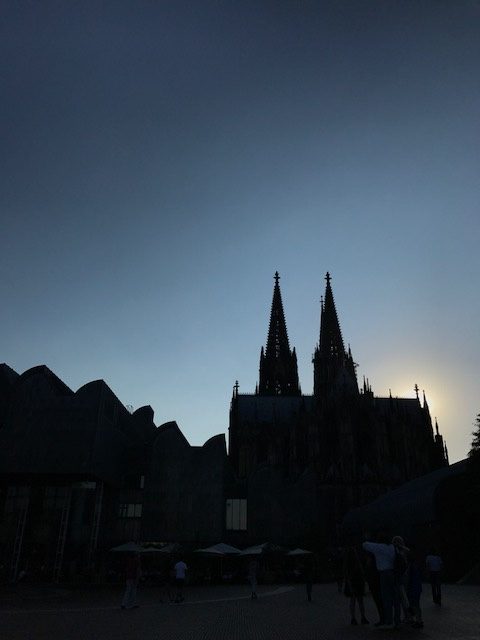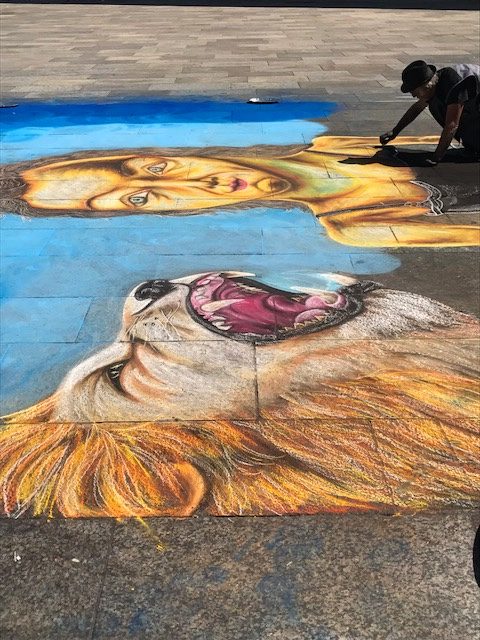From a nation full of different cultures, languages, and nationalities, we were met with the enticing culture of Bavaria. At the Niedtralich station we met fourteen families with smiles plastered onto their faces and a happiness that was nothing but inspiring and passionate. We all embraced the unknown knowing that each family had a week full of excitement to offer. Many of the families spoke English, many did not. It was an unforgettable experiences from attending a German high school to having our first taste of the traditional Bavarian breakfast. The week ended with a union of all families as we shared a warm meal surrounded by constant chatter that at first felt nearly impossible with the language barriers. English or not, all the families and the host siblings shared more then enough in common. From music to pet peeves, it truly did feel like a second home. The warm night air brought a gentle breeze through the sitting area and like clock work, the families left one at a time with their experimenters. Leaving behind our host families was a disheartening occasion but it was only the beginning of our journey of through the Experiment. Bavaria became a treasured memory as we encountered our first taste of Germany’s history, the E.U, and international relations in Cologne. Cologne embodied the true essence what it meant to be in such a fast paced city. The hustle and bustle of cities all over the world makes them natural commercial social hubs for all people to mold into. Behind the steel and stone there’s a certain authenticity of the way the gravel moves underneath our feet in uneven movements but assured stability. A workshop was held at The House of History in Bonn to express the sheer reality of what adversities the E.U currently faces. The current events were bound to spark debate, and they did just that. I found myself engaged in a heated discussion about what exactly was the foundation of Italy’s nationalistic and xenophobic approach to the refugee crisis. To put these events into perspective we explored the museum aspect of the trip and found ourselves emerged into the fast paced history of east and west Germany. Thousands of documents and dozens of artifacts answered our wildest questions about the Berlin Airlift to consumer consumption in the 60s. At the end of the tour we were met by an ever-changing exhibit. This time, the exhibit put on display a boat that carried thousands of refugees across the Mediterranean. Life jackets were sprawled around the boat symbolizing hope, and loss. The wall across from the display held a painting that carried the weight of the refugee crisis. A small boy, faced down in the water, drowned and washed up to shore. Sadness and grief were the initial reactions; but this wasn’t the end. The exhibit would change, history would change, this wasn’t forever, and the exhibit was living proof of that. Time would go on and years from now the displays would change. Perhaps they will show a young Syrian family who survived the journey to Europe and built a life for themselves. Or perhaps the situation will worsen. The unknown is simply unknown. There was a yearning in all of us to change the world right then and there, but there was much work to be done. Just as when we first met our host families, there was fear of misunderstanding but hope that it would be one of the best times of our lives. And it was. Things aren’t permanent, and they aren’t expected to be. The E.U was never meant to be perfect, it was meant to embody aspects of attempts at unity. Where there is effort, there are always desirable results. Our journey continues from Cologne to Brussels to engage in more knowledge about the E.U and international relations. As we continue, there will always be more to learn, more to know, and more to change.




